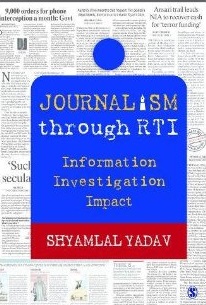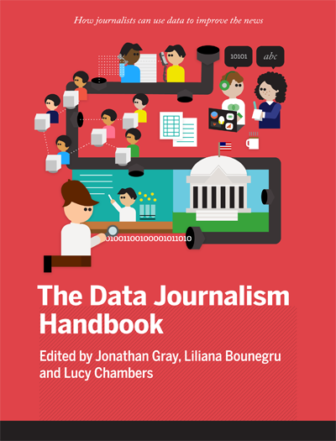

GIJN’s Global Guide to Freedom of Information: FOI Tips and Tricks
Read this article in
Guide Resource
GIJN’s Global Guide to Freedom of Information
Chapter Guide Resource
GIJN’s Global Guide to Freedom of Information: FOI Tips and Tricks
Chapter Guide Resource
GIJN’s Global Guide to Freedom of Information: Inspirational FOI
Chapter Guide Resource
GIJN’s Global Guide to Freedom of Information: Resources
Chapter Guide Resource
GIJN’s Guide to National Rules on Where Foreigners Can Make FOI Requests
This is part one of our three part series: GIJN’s Global Guide to Freedom of Information. FOI Tips and Tricks offers a round up of expert advice from around the world.
Nobody pretends that it’s easy or always productive to exercise the right to information. But the return on investment can be very positive. To help make the challenge less daunting, some of those who have climbed the FOI mountain have left maps of their journeys.
Because national laws vary in detail, giving generic advice on FOI is a bit tricky. Interestingly, however, the tip sheets of veteran journalists and FOI experts display considerable commonality.
GIJN examined many such roadmaps — from journalists and researchers in India, Mexico, Switzerland, the United Kingdom and the United States — and found eight common themes. Their own lists follow, along with links that will take you to their fuller expositions, which contain anecdotes and tricks of the FOI trade.
 GIJN’s Eight Top Tips
GIJN’s Eight Top Tips
- Plan ahead: Figure out what you want. All experienced requesters stress the value of doing advance research.
- Poke around: Try other avenues. Ask for the information informally and pursue alternative sources before going down the official road.
- Plot: Understand where the information is located. It’s important to know not only what you’re looking for, but where it’s located within the government.
- Prepare: Learn about the law. Study the access law you will be using. For example: what fees might be involved? What’s the timeframe for answers? What are your rights?
- Pose precise questions (to the right place). All experienced requesters stress the value of asking clear questions. Ambiguity can work against you. Asking focused questions can speed up the processing of the request. Some experts prefer a series of small requests to a big conglomerate request. “Give me everything” queries have their place, but are not the most effective or efficient requests. “Why” questions won’t work. Translating your interests into precise questions. So, instead of asking “What does the director do?” state: “Please provide the job description of the director.”
- Play the Game: Following up pays dividends. Don’t just sit by and wait while a request is being processed. Stay in contact with the responsible officials, being friendly if possible. Patience and persistence are necessary, and perhaps negotiation.
- Appeal: Do it. Denials are common, so be prepared. Appealing is recommended, even if you don’t (or can’t) litigate.
- Publish: Don’t be shy. Write about your requests from the beginning. Win or lose, report on the outcome.
Tip Sheets
Journalists from around the world have written FOI advice columns. Following are edited versions from India, Mexico, Switzerland, the United Kingdom and the United States. GIJN boiled them down to bullet points, but strongly recommends reading the full articles for deeper explanations and commentary.
Indian journalist Shyamlal Yadav, for example, craftily advises, “It is always better that a journalist seeking information does not disclose the idea and just asks for that part of information he/she wants from the concerned public authority.”
Mexican journalist Alejandra Xanic von Bertrab amusingly counsels, “It’s well worth doing some journalistic work before sending letters to Santa.”
Indian Activist CJ Karira encouragingly says, “As long as the applicant knows the basics of the RTI Act 2005, drafting an application, requesting for information from any public authority, is little more than child’s play.”
India | Europe | Latin America | United States
India
CJ Karira: RTI India
 Published by RTI India, the “Guide to Drafting a Good RTI Application,” by CJ Karira, begins: “Drafting a good RTI application can be as easy as writing a simple leave letter. As long as the applicant knows the basics of the RTI Act 2005, drafting an application, requesting for information from any public authority, is little more than child’s play.”
Published by RTI India, the “Guide to Drafting a Good RTI Application,” by CJ Karira, begins: “Drafting a good RTI application can be as easy as writing a simple leave letter. As long as the applicant knows the basics of the RTI Act 2005, drafting an application, requesting for information from any public authority, is little more than child’s play.”
- Pre-requisites.
- Preparing to draft a RTI application.
- Why do you need the information?
- What will you do with the “information” once you get it?
- Ask for only “information!”
- Be specific in asking for “information” and avoid vague expressions and requests.
- How long should your RTI application be? Do not make your application very long.
- Specify the period for which information is sought.
- Ascertain if the information is already available.
- Exhaust all possible means of grievance redressal before using RTI.
- General: “Never draft an RTI application when you are in an angry, revengeful or even a bad mood. Such applications are bound to fail.
Nagesh Kini: FOI activist
In an article for Moneylife, Nagesh Kini notes some tips on how to “extract the most appropriate response and minimize the possibilities of rejection on frivolous grounds.” His edited tips:
- The RTI Act entitles you to obtain response by way of information within 30 days.
- Remember, it is the basic information that is being sought and not hows, whys and whos of any matters.
- Information under the Act can be sought from central, state and local authorities, parliament and state legislatures, judiciary, police, security forces, public sector undertakings and bodies substantially financed by the state.
- You need to consider deeply the precise nature of the information required to enable you to frame your query in English, Hindi or the state language in a few words. Do not go on rambling explanations or suggestions or attempt vague roving enquiries.
- The RTI should never be used to settle scores or to target or harass any one individual or department.
- It is important that the information elicited is not merely filed away.
- You can seek information pertaining to records, documents, memos, mails, opinions, advices, press releases, circulars, images or any computer-generated matter, orders, log books, contracts, reports, papers, samples, models or electronic data.
- Under Section 4 of the RTI Act, you are empowered to visit, by prior appointment, the office concerned to inspect records and official documents and obtain copies on payment of copying charges.
- The Act also provides for inspection of government works and to take samples from sites.
- Section 6 of the Act has laid down a simple form that that can be copied on plain paper and signed by the applicant.
- The application fee can be paid in cash at the counter; court fees stamp can also be affixed in some cases.
- However, a more convenient mode would be to obtain a postal order for the amount, attach it to the application in duplicate and hand it in the RTI counter in any head post office. The PO then sends the application to the department concerned with a copy to you.
Bimal Khemani: RTI activist
These tips are from “RTI for Beginners: A Simple Format and Tips for Writing Good RTI Applications,” written by Bimal Khemani, a consumer and RTI activist.
 A good RTI application is as boring as a laundry list. It is a bare list of information items without any reasoning.
A good RTI application is as boring as a laundry list. It is a bare list of information items without any reasoning.- A good RTI application is short and childishly simple for the PIO to fulfill.
- If you need a lot of information, write many small RTI applications.
- Keep the period of information minimal. Don’t be over-ambitious.
- Crime-fighting RTI application? (Advice on asking for information to misdirect officials.)
- You are a citizen, not an investigating agency. You don’t have to substantiate every allegation. File complaint first, RTIs come later.
- Don’t shoot your first draft; first drafts are always faulty.
Sailesh Gandhi: Former Indian Central Information Commissioner
Sailesh Gandhi termed these “Four golden rules for writing effective RTI Applications.” Written as a letter to “fellow activists,” he began:
“We often sit down to draft an RTI application in an angry and unrealistic mood. When we write RTI applications, our focus should be on getting information. Instead, we are thinking about stopping some wrongdoings, getting some officials and corrupt contractors penalized, making the authorities ‘answerable’ for negligence etc, etc. At such times, we fail to think clearly about the items of information that we need. Right to Information Act 2005 is a law, and effectiveness in legal work depends on using the law without anger, resentment and wishful thinking.”
His four golden rules are:
- Point to various specific documents.
- Name documents using words from Sec 2(f) and Sec 4(1)(b) of the RTI Act — reports, logbooks, emails, advices, rules, regulations, manuals, etc.
- Don’t ask questions, don’t demand explanations and don’t make allegations.
- Avoid vague expressions and requests, such as: What is the status of my complaint? What further action has been taken on my complaint/letter?
Shyamlal Yadav: Journalist
 Shyamlal Yadav, who has filed more than 6,000 RTI applications, described his work in the 2017 book Journalism through RTI. In a final chapter, Yadav condensed his experiences into 20 guidelines.
Shyamlal Yadav, who has filed more than 6,000 RTI applications, described his work in the 2017 book Journalism through RTI. In a final chapter, Yadav condensed his experiences into 20 guidelines.
- Conceptualize the idea.
- Begin by getting available information without RTI.
- Don’t question, just ask for information.
- Be simple and clear in format and be aware of the loopholes.
- Know the exemptions before you exercise the right.
- Try all concerned public authorities for same information.
- Get familiar with PIOs.
- Moving targets.
- No need to reveal identity of a journalist.
- Be prepared for any response.
- Remember, a NO doesn’t always mean NO.
- Don’t waste time, file online or by post.
- Be patient, be persistent.
- Do extra work on information.
- Have sensitivity toward RTI officials.
- Take help from information commissioners.
- Inspection of documents.
- Stories from the group.
- State-level stories.
- Follow up, follow up.
Getting Stories Through FoI Laws was Yadav’s presentation given at IJAsia18.
Europe
European Experts: The Data Journalism Handbook
 Below are the boiled down suggestions from a chapter in The Data Journalism Handbook. It was written by Helen Darbishire (Access Info Europe), Djordje Padejski (Knight Journalism Fellow, Stanford University), Martin Rosenbaum (BBC) and Fabrizio Scrollini (London School of Economics and Political Science).
Below are the boiled down suggestions from a chapter in The Data Journalism Handbook. It was written by Helen Darbishire (Access Info Europe), Djordje Padejski (Knight Journalism Fellow, Stanford University), Martin Rosenbaum (BBC) and Fabrizio Scrollini (London School of Economics and Political Science).
- Plan ahead to save time.
- Check the rules about fees.
- Know your rights.
- Keep it simple.
- Keep it focused.
- Think inside the filing cabinet.
- Be specific.
- Submit multiple requests.
- Submit international requests.
- Do a test run.
- Anticipate the exceptions.
- Ask for access to the files.
- Keep a record.
- Make it public.
- Involve colleagues.
- Ask for raw data.
- Ask about organizations exempt from FOI laws.
European NGOs: Access Info Europe and Network for Reporting on Eastern Europe
 “A Guide For Journalists On How To Access Government Information” is part of the Legal Leaks Toolkit prepared by Access Info Europe and the Network for Reporting on Eastern Europe. It includes good general information along with some material specific to Europe.
“A Guide For Journalists On How To Access Government Information” is part of the Legal Leaks Toolkit prepared by Access Info Europe and the Network for Reporting on Eastern Europe. It includes good general information along with some material specific to Europe.
- Plan ahead to save time.
- Start out simple.
- Submit multiple requests.
- Mention your right to information.
- Tell them you are a journalist.
- … or don’t tell them that you are a journalist!
- Hide your request in a more general one.
- Anticipate the exceptions.
- Check the rules about fees.
- Ask for electronic documents to avoid copying costs.
- Ask for access to the files.
- Keep a record!
- Speed up answers by making it public that you submitted a request.
- Prepare to appeal against refusals and silence.
- Make a story out of refusals.
- Appeal based on the public interest.
- Make a standard template for appeal.
- Get help to address problems with spokespersons.
- Involve your colleagues in using access to information.
- Submit international requests.
Florin Badita: Activist and founder of the civic platform Corruption Kills, the biggest civic community in Romania
Badita has filed over 7000 FOIA requests to 3000 public authorities. She describes her system in this article: How to use Freedom of information law (FOI law) as a anti-corruption tool in any country.
Matt Burgess: United Kingdom FOI Blogger
The following suggestions are taken from “Tips for Making a FOI Request,” by Matt Burgess, author of the UK blog FOIA Directory. He is a digital journalist, freelancer and has written a book on the Freedom of Information Act for journalists.
- Ask for information.
- Say you’re requesting under the Act.
- Research, research, research.
- Don’t be vague.
- Include a caveat.
Helen Darbishire: Access Info Europe
 At a 2015 Guardian masterclass on investigative journalism, Helen Darbishire of Access Info Europe gave 10 tips to follow in pursuing FOI requests. More details can be found here.
At a 2015 Guardian masterclass on investigative journalism, Helen Darbishire of Access Info Europe gave 10 tips to follow in pursuing FOI requests. More details can be found here.
- It might be public already!
- Set prejudice aside.
- Know your right/law.
- Keep a record of your requests. Set an alarm.
- Think laterally.
- Go public with your request.
- Be prepared for the answer.
- Anticipate exceptions.
- Appeal, Appeal, Appeal.
- A refusal is a story to publish.
Paul Gibbons: United Kingdom FOI Blogger
 “Ten Top Tips on Making Responsible and Effective FOI Requests” from the FOI Man Blog, by Paul Gibbons:
“Ten Top Tips on Making Responsible and Effective FOI Requests” from the FOI Man Blog, by Paul Gibbons:
- Count to ten before clicking “send.”
- Do your research.
- Take care when making “round robin” requests.
- Try an informal approach first, if possible.
- Be specific.
- Don’t be greedy.
- Be polite.
- Be patient.
- Read the response carefully and, if necessary, use the appeal process.
- Use the information you receive responsibly.
LoiTransparence.ch: Swiss FOI association
This “Tips and Tricks” list is from LoiTransparence.ch, a Swiss association funded by publishers, foundations and individuals and dedicated to making the national transparency law effective. It is published in German and French, but is translated here (with apologies).
 There is always a document.
There is always a document.- Assert your legal right to documents.
- Before making a formal request, ask what documents exist and whether you can have them.
- Research available documents.
- Make concrete requests.
- Tap several sources.
- Know the paper trail.
- Be persistent.
- Look into the law.
- Always ask for data collections, e-mails or Powerpoint presentations.
- Go deep into the dossier by asking for all other documents in the same context.
- If official deadlines are not met or the public law is obviously wrongly implemented, a friendly protest is almost always worthwhile.
- Find out what others have requested.
- Negotiate.
- Do not forget that extra parliamentary commissions and working groups are available on almost every topic.
- Stay tuned. It is useful to make repeated requests in the same area.
- Use email and request documents in electronic form.
- Stand for transparency; appeal if necessary.
- Indicate if the document was obtained using the access law.
Latin America
Alejandra Xanic von Bertrab: Mexican Journalist
These tips for using FOI were penned by independent Mexican journalist Alejandra Xanic von Bertrab, who shared a Pulitzer Prize with New York Times reporter David Barstow for investigating Walmart’s expansion in Mexico, a pursuit that required more than 800 FOIA requests. Von Bertrab’s tips summarized:
- Explore alternate routes.
- Study the tool.
- Be careful what you ask for.
- What do they mean by information?
- Do some talking.
- Be prepared for pushback.
- You don’t need to identify yourself as a reporter.
- A denial doesn’t mean a conspiracy. There could be very mundane and absurd reasons, or the request itself might have been confusing.
United States
Jason Leopold: Journalist
Jason Leopold is such an active FOIA user that he was dubbed a “FOIA terrorist.”
The US group News Media Alliance put together a six-point “Essential Tips for FOIA Journalism” that ran along with an article by Jennifer Peters about Leopold and a longer interview with him.
- Ask for Everything, But Not at Once
- Piggyback on Other Requests
- Appeal, Appeal, Appeal
- Build Up a Pipeline
- Read Everything. Then Read It Again
- If All Else Fails, Sue
Leopold’s ideas are also explained in an article by John Tedesco, investigative reporter for the San Antonio Express-News.
The acknowledgement letters to all the #FOIA requests I filed in 2016. pic.twitter.com/b8qBdzAqZF
— Jason Leopold (@JasonLeopold) December 31, 2016
U.S. FOIA Experts: Advice Articles
“Always appeal” and more pro tips from a dozen U.S. FOIA experts in a Columbia Journalism Review article.
Five Lessons distilled by Muckrock from an anonymous, lengthy and colorful slide presentation. (Always be filing; pick up the phone; wave the press pass; appeal, appeal, appeal; and documents lie”)
“What makes a good FOIA request? We studied 33,000 to find out.” A Columbia Journalism Review article.
Suggestions from three journalists given during a 2022 National Press Club program, including the idea of looking up pet license records to get telephone numbers.
Activists and others speak about their FOI experiences in interviews compiled by Muckrock, the US FOIA request site.
Muckrock in 2018 published Using FOIA and public databases to track down Department of Defense contracts.
FOIA lessons from Gawker Editor John Cook, described in Poynter article: 1) Be flexible. 2) Publish everything. 3) Be patient.
The complete series from GIJN’s Global Guide to Freedom of Information can be found here:
- Introduction
- Tips and Tricks: A collection of the best advice on how to use access laws.
- Inspirational FOI: Ideas of what to ask for and stories about journalists active in using FOI.
- Global Resources: Country-by-country guidance and links to national resources.
 This guide was put together by Toby McIntosh, the director of GIJN’s resource center and the editor of FreedomInfo.org, a nonprofit website based in Washington, DC that covers international transparency laws. He was with Bloomberg BNA for 39 years and has filed numerous US FOI requests and has written about FOI policies worldwide. He is also a steering committee member of FOIANet, an international network of FOI advocates.
This guide was put together by Toby McIntosh, the director of GIJN’s resource center and the editor of FreedomInfo.org, a nonprofit website based in Washington, DC that covers international transparency laws. He was with Bloomberg BNA for 39 years and has filed numerous US FOI requests and has written about FOI policies worldwide. He is also a steering committee member of FOIANet, an international network of FOI advocates.














